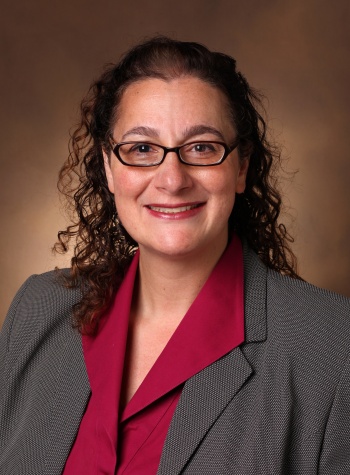By Jake Lowary
A self-described “accidental researcher,” Christianne Roumie, MD, MPH, has been named the director of the Vanderbilt University School of Medicine Master of Public Health program, a two-year interdisciplinary program accredited by the Council on Education for Public Health.
Roumie, who completed her MPH at Vanderbilt in 2005, credits the program for igniting her passion for public health. Since earning her MPH, she has been heavily involved with the program as a mentor to more than 15 MPH students and as director of the Epidemiology track since 2015. She is also an associate professor of Medicine and Pediatrics.
Roumie becomes the fourth director of the MPH program, succeeding Marie Griffin, MD, MPH, who is retiring after an acclaimed research and clinical career. Griffin had served as the program’s director since 2014, guiding the program through steady growth and increased national prominence.
Roumie came to Vanderbilt University Medical Center (VUMC) in 1998 for a residency in internal medicine and pediatrics. She completed her MPH after she was encouraged by William Cooper, MD, MPH, Cornelius Vanderbilt Professor of Pediatrics and Health Policy, to pursue additional training and education. She earned her medical degree from New Jersey Medical School.

Her experience in the program expanded her perspective and focus to go beyond one-on-one patient care and improve public health at the population level. Her research examines the interactions between cardiovascular risk factor control, medication use and evidence-based medication prescribing. Her most recent research includes investigating how second-line medications commonly prescribed to patients with diabetes impact kidney function.
“I have always maintained that it is super important to affect patient care one-on-one,” Roumie said. “That is the really the majority of how we impact patients. However, if I write one good article or I teach public health practitioners and they each impact two patients, then I have made a much greater contribution to medicine and to public health as a whole.”
The MPH program was begun in 1996 and then primarily served Vanderbilt University Medical Center physicians interested in growing their skill sets and training. Today, the program includes three tracks — health policy, epidemiology and global health — and accepts students from diverse backgrounds, not just clinicians.
Roumie was named the program director in August after a national search, said Melinda Buntin, PhD, Mike Curb Professor of Health Policy and chair of the Department of Health Policy. The Department of Health Policy houses the academic program in the School of Medicine under the Institute for Medicine and Public Health.
“We are grateful to have someone as talented and dedicated as Dr. Roumie taking up the leadership of the Vanderbilt MPH Program,” Buntin said. “Now, more than ever, public health is in the spotlight and our future safety and prosperity will be in the hands of public health leaders trained in programs like ours.”
While the COVID-19 pandemic has thrust public health leaders and practitioners into the global spotlight, Roumie said the pandemic has also brought with it opportunities to take the first steps in line with the program’s new strategic plan, finalized before the height of the pandemic.
One emphasis is to explore ways to make the program more accessible for working public health professionals through online, hybrid or part-time course offerings. With many classes forced into virtual settings during to the pandemic, the program has gained experience with more agile offerings and infrastructure.
The program is committed to its small, student-focused environment but will also explore ways to create deeper relationships with large organizations of public health practitioners and leaders, Roumie said.